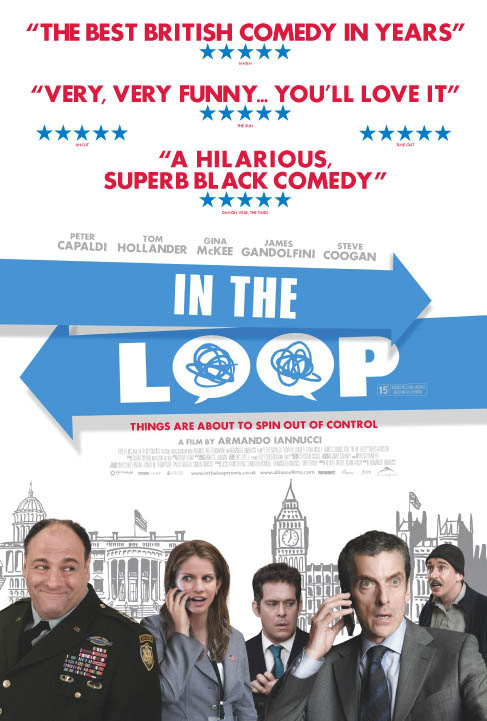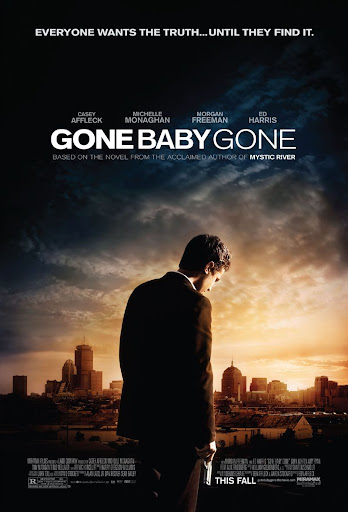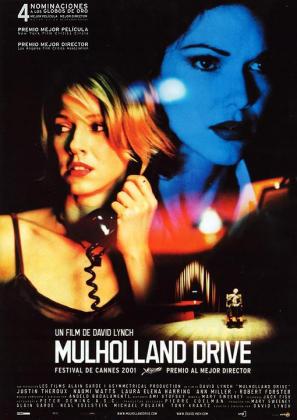134) The Town
Director: Ben Affleck
Year: 2010
Plot Summary: Doug MacRay was born and raised in Charlestown, a blue-collar neighborhood in Boston, where crime is a part of life. Charlestown is the world's capital for carjacking, kidnappings, and armed robberies. He is the brains and ruthless leader of a gang of bank robbers who have been able to get out clean after each bank robbery. But Doug knows that his luck will not last forever, and he is looking for one last big heist that will give him the chance to leave the town in his rear-view mirror. He finally gets the chance when he falls for a bank manager he kidnapped during his most recent raid.
 After the success of his debut film as a director, Gone Baby Gone, there were high expectations for Ben Affleck's latest crime drama. However, The Town doesn't just live up to the hype, it actually exceeds it.
After the success of his debut film as a director, Gone Baby Gone, there were high expectations for Ben Affleck's latest crime drama. However, The Town doesn't just live up to the hype, it actually exceeds it.
The movie is set in the notoriously crime ridden neighbourhood of Charlestown, Boston, described in the movie's opening titles as the bank robbery capital of the world. However, in the spirit of great crime sagas like Heat, City Of God or the acclaimed HBO show The Wire, Ben Affleck's movie doesn't just use this setting as the backdrop to these characters' stories, it actually becomes the focus of the narrative. The family ties that bind the people who live there, the feeling of community and loyalty among Charlestown's citizens, and the way that so many of them are forced to turn to a life of crime because of it's poverty are just as important in The Town as any narrative twist or character development. Moreover, as a Boston native, Affleck's presentation of Charlestown is one that doesn't feel like a tourist's version of the place but rather an authentic, honest look at what life is like there.
But that doesn't mean that the characters aren't rich and well-developed, because they certainly are. By the end of The Town, you almost feel like you know the two main criminals, Doug and James, inside out they are so three dimensional. The former, for example, as the film reaches the second act, shows a new side to him from the hardened criminal mastermind that he is initially presented as. We see how he is tortured by his mother's disappearance and see how he is tied down by the lifestyle his father lived. The latter, moreover, sheds his trigger-happy, violent skin and becomes a strangely loveable antagonist. Someone who, despite his rough edge, is both a loyal and caring friend.
These characters are also incredibly well performed in one of the most impressive ensembles I've seen so far this year. Affleck's role is a career best, Jon Hamm proves that he's far more than just the 60s ad man that we've grown to love in Mad Men giving his FBI agent a dark, loathsome edge and Jeremy Renner, nominated at the Oscars for his acting in The Hurt Locker last year, gives one of the strongest performances from a supporting actor in 2010. Even the likes of Chris Cooper and Liverpudlian Pete Postelthwaite, despite their short screen time, deliver some powerful moments.
Still, the biggest praise should rightly go to the direction from Ben Affleck. Right from the very first bank heist, he keeps The Town moving at the pace of a jet airplane, never letting your attention waiver for but a second. Furthermore, in spite of how quickly it bombs along, he also manages to make it a work of cinema that is both emotionally involving and so suspenseful that there are moments when you'll literally be on the edge of your seat.
While it isn't a perfect movie and it doesn't exactly tread on new ground and it's nothing that unique or original, The Town is one of the most well executed thrillers that you are likely to encounter this year, taking Ben Affleck on his next step to being an auteur alongside the likes of Michael Mann.
4/5
 British cinema seems to love claustrophobic thrillers at the moment. But, unfortunately, none of them so far have succeeded as anything more than simply a good concept. The Descent was one of the first of this genre; a harrowing, character driven ride that took us, quite literally, into the depths of fear, anxiety, paranoia and isolation, only to be ruined by the slasher-flick ending involving monsters and rivers of blood. This year year also produced The Disappearance Of Alice Creed, a movie that began riveting but became increasingly dull as the plot ran thinner and thinner.
British cinema seems to love claustrophobic thrillers at the moment. But, unfortunately, none of them so far have succeeded as anything more than simply a good concept. The Descent was one of the first of this genre; a harrowing, character driven ride that took us, quite literally, into the depths of fear, anxiety, paranoia and isolation, only to be ruined by the slasher-flick ending involving monsters and rivers of blood. This year year also produced The Disappearance Of Alice Creed, a movie that began riveting but became increasingly dull as the plot ran thinner and thinner.


























